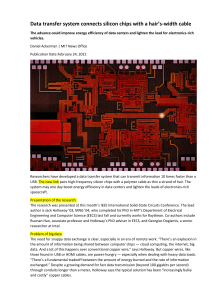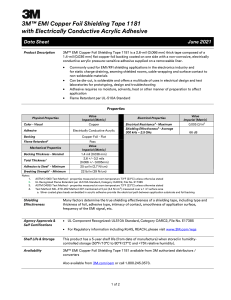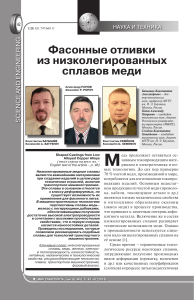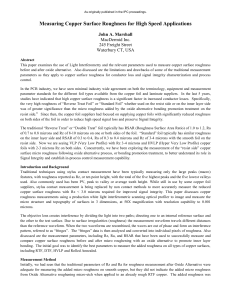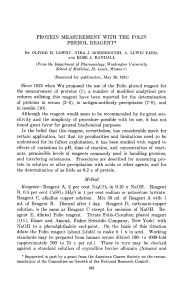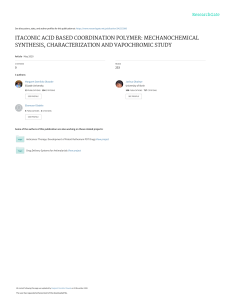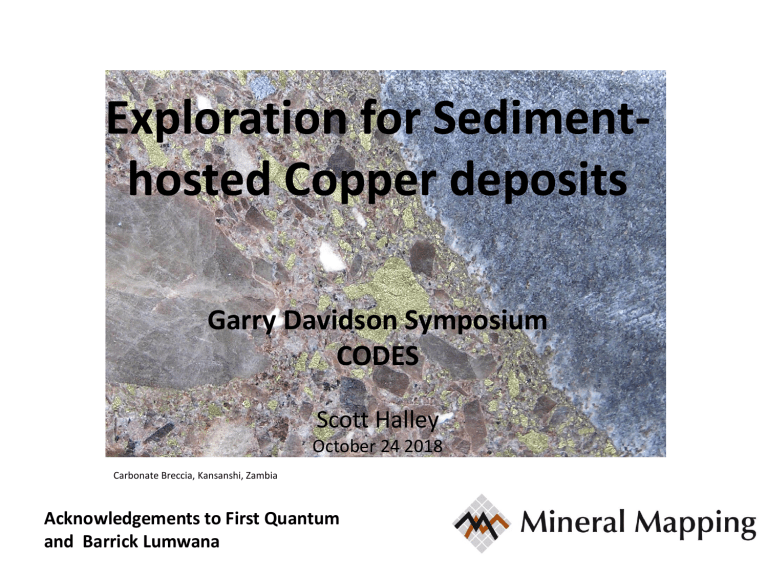
Exploration for Sedimenthosted Copper deposits Garry Davidson Symposium CODES Scott Halley October 24 2018 Carbonate Breccia, Kansanshi, Zambia Acknowledgements to First Quantum and Barrick Lumwana Location of Major Deposits Redstone Udokan Kupferschiefer Lisbon Valley White Pine Spar Lake Cenozoic Aynak Dzhezkazgan CACB Mesozoic Paleozoic Proterozoic (Hitzman et al., 2005) Sediment-hosted Copper deposits Key ingredients; • Salt • Red Beds • Reduced shales Hitzam, Selley and Bull, 2010, Econ Geol, vol 105 Dominantly “reduced” facies above the Roan Dominantly “oxidized” facies in the Roan Hitzam, Selley and Bull, 2010, Econ Geol, vol 105 Salt Red Beds Reduced shales Red Beds, Lower Roan sandstone Enterprise Ni deposit Evaporite; carbonate-filled breccia After evacuation of salt, Kabompo Dome Carbonaceous siltstone Sentinel Cu Mine Evaporites through Time Pangea Hitzam, Selley and Bull, 2010, Econ Geol, vol 105 Rodinia Alteration Signatures of Brines Hypersaline Brines create distinct alteration signatures Magnesium Metasomatism Quartz sandstone altered to Magnesite+Talc+Millerite (NiS)+Vaesite (NiS2) Enterprise Ni deposit Ca vs Mg Alteration Signatures of Brines Hypersaline Brines create distinct alteration signatures Feldspar-rich alteration 3KAlSi3O8 + 2H+ KAl3Si3O10(OH)2 +6SiO2 + 2K+ Albite (+/- Carbon) around a quartz+CCP vein, Kansanshi, Zambia Alteration Signatures of Brines Hypersaline Brines create distinct alteration signatures Ni-Co mobility Hypersaline brines make pyrite with unusually high Ni and Co contents Pyrite map from Telfer Alteration Signatures of Brines Ni-Co mobility In background rocks, Ni is highly correlated with Sc. Ni enrichment is measured with a Ni/Sc ratio Ni substituting for Mg in talc Ni substituting for Fe in Fe-Mg-silicates Alteration Signatures of Brines Gridded image of Ni/Sc ratio; Mapping nickeliferous hydrothermal talc in lower Roan red beds. Quartz-Talc-Hematite, Enterprise, Zambia Flat fold axes, detachment surfaces, flat foliation Alteration Signatures of Brines Hypersaline Brines create distinct alteration signatures LREE mobility Monazite; (Ce, La, Nd, Th)PO4 Timing of Mineralization • Diagenetic, compaction-driven? • Orogenic, deformation-driven? • Intrusion-related, thermally-driven? All of the above!! Salt Tectonics low density => salt diapirism Low mechanical strength => shallow-dipping slip planes https://callforbids.cnsopb.ns.ca/2016/01/ns16-1parcels/salt-tectonics Salt tectonics along the Atlantic margin of Morocco Gabor Tari and Haddou Jabour Geological Society, London, Special Publications, 369, 337-353, 26 March 2013, https://doi.org/10.1144/SP369.23 Timing of Mineralization; Kansanshi Recumbent fold; detachment in evaporite Radial vein array cross-cutting folds SW NE 2 km Kansanshi Unusually thick sequence of Lower Roan red bed Total removal of Cu, Co, Mo etc from red bed Ni-talc and hydrothermal monazite at the top of red bed Reductants in shales Organic shales commonly have enrichment in V-Mo-U and other metals; Pick V enrichment by plotting against Sc Background V:Sc = 7:1 Reductants in shales Organic shales commonly have enrichment in V-Mo-U and other metals Reductants in shales Organic shales commonly have enrichment in V-Mo-U and other metals Geophysics Magnetics Basement and lower Roan; hematite => magnetically quiet Mwasha, Grand Conglomerate; Fe-rich, reduced, => magnetically complex Geophysics Radiometrics; K-U-Th RGB Hydrothermal Monazite in the red beds mapped with radiometrics Geochemistry; Copper Mafic rocks have background of 100ppm Cu; Felsic rocks have background of 10ppm Cu Copper assays map bedrock geology; real anomalies hard to pick in variable “background” Colloform ankeritehematite-barite. Abra, WA Geochemistry; Copper Plot Copper versus Scandium to account for variable silicatehosted component of copper Addition of sulfide-hosted copper Silicate-hosted copper Geochemistry; Copper Copper versus Scandium ratio Defines samples with a sulfide contribution to total copper Cu/Sc ratio accounts for the background silicate-hosted component of Cu in each sample. By plotting the ratio, samples with a sulfide contribution to total copper can be identified. Geochemistry; Copper Kabompo Dome Gridded image of Copper distribution in soils. Hypogene Copper grade at Sentinel is 0.51%. Soils over the deposit typically have 100 to 300ppm. 95% of the sulfide copper is leached out in a 20m thick saprolitic weathering profile. Sentinel Cu mine Metal Source? Kabompo Dome soil geochem Addition of sulfide-hosted copper Copper depletion Geochemistry; Copper Cu/Sc ratio highlights Cu-sulfide anomalies. TALC Metal Source? Dark blue points; 50x50 km and 500m thickness at 10ppm Cu background Easily enough Cu to form Sentinel TALC Lumwana_Sentinel_Kansanshi comparison Cu/Sc ratio maps Cu depletion in lower Roan quartz sandstone + basement Sentinel 300m by 300m samples Lumwana 1km by 1km samples Kansanshi Deep DDH Lumwana_Sentinel_Kansanshi comparison Ni/Sc ratio maps Ni-talc at the top of lower Roan quartz sandstone Sentinel 300m by 300m samples Lumwana 1km by 1km samples Kansanshi Deep DDH Lumwana_Sentinel_Kansanshi comparison Cerium maps HT monazite at the top of the lower Roan quartz sandstone Sentinel 300m by 300m samples Lumwana 1km by 1km samples Kansanshi Deep DDH Conclusions; What works? • Geological Mapping!! • Systematic Geochemistry • Initially broad-spaced, 4acid, low DL ICP-MS • Airmag, radiometrics, EM all contribute to mapping parts of the process. Food for thought Chemistry of the dolerites Large volume of 780ma dolerite sills intruding Mwasha shales and evaporites!! Food for thought Chemistry of the dolerites Zambia was underplated by basalt with MSS and ISS sulfides!! Food for thought Lumwana and Sentinel gangue mineralogy Samples with >0.5% Cu, gangue mineralogy phlogopite-kyanite-muscovite Phlogopite Bulk composition always plots at the projected position of muscovite, Therefore on the scale of an assay sample, phlogopite and kyanite always have the same proportions. Kyanite Food for thought Lumwana and Sentinel gangue mineralogy Hydrothermal phlogopite-kyanite, or illite-dolomite rock metamorphosed to phlogopite-kyanite-muscovite? When did Cu arrive? Kyanite Muscovite Phlogopite Quartz-muscovitechalcopyrite schist, Lumwana Phlogopite-kyanite-bornite schist, Lumwana
